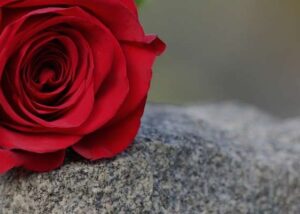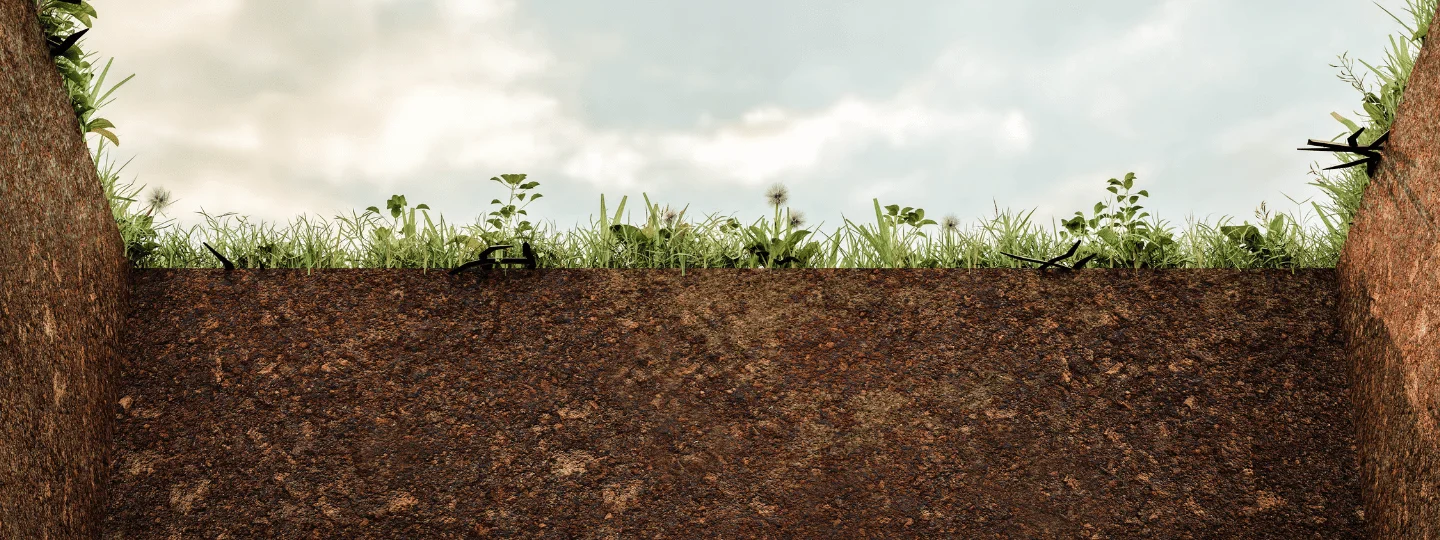Quran
Hadith
Islamic Text
بِسْمِ اللَّهِ الرَّحْمَنِ الرَّحِيمِ
In the Name of Allah Most Merciful Most Kind
Short Answer
When you enter a graveyard, it is recommended for you to give Salam (greetings) to the deceased as mentioned in Sahih Muslim (see below). You should also recite dua for the deceased at the grave.
Hadith
The following words have been narrated in Sahih Muslim:
السَّلَامُ عَلَيْكُمْ أَهْلَ الدِّيَارِ مِنَ الْمُؤْمِنِينَ وَالْمُسْلِمِينَ، وَإِنَّا، إِنْ شَاءَ اللهُ لَلَاحِقُونَ، أَسْأَلُ اللهَ لَنَا وَلَكُمُ الْعَافِيَةَ
Peace be upon you, o dwellers from the believers and Muslims. Indeed, we will be joining you, by the Will of Allah (Most High). We ask Allah (Most High) for well-being, for us and for you. (Sahih Muslim 975 – 104).
Explanation
In the Sahih Hadith above, we find the Salam (greeting) the Blessed Prophet ﷺ taught when entering a graveyard. Therefore, this is what a person should say when entering the graveyard.
It is interesting to note that one does address the dead directly (in the second person). This indicates that those in the grave can hear one. This is further supported by the following Hadith:
عَنْ أَبِي طَلْحَةَ، أَنَّ نَبِيَّ اللَّهِ صَلَّى اللهُ عَلَيْهِ وَسَلَّمَ أَمَرَ يَوْمَ بَدْرٍ بِأَرْبَعَةٍ وَعِشْرِينَ رَجُلًا مِنْ صَنَادِيدِ قُرَيْشٍ، فَقُذِفُوا فِي طَوِيٍّ مِنْ أَطْوَاءِ بَدْرٍ خَبِيثٍ مخبث وكان إِذَا ظَهَرَ عَلَى قَوْمٍ أَقَامَ بِالعَرْصَةِ ثَلاَثَ لَيَالٍ، فَلَمَّا كَانَ بِبَدْرٍ اليَوْمَ الثَّالِثَ أَمَرَ بِرَاحِلَتِهِ فَشُدَّ عَلَيْهَا رَحْلُهَا، ثُمَّ مَشَى وَاتَّبَعَهُ أَصْحَابُهُ، وَقَالُوا: مَا نُرَى يَنْطَلِقُ إِلَّا لِبَعْضِ حَاجَتِهِ، حَتَّى قَامَ عَلَى شَفَةِ الرَّكِيِّ، فَجَعَلَ يُنَادِيهِمْ بِأَسْمَائِهِمْ وَأَسْمَاءِ آبَائِهِمْ: يَا فُلاَنُ بْنَ فُلاَنٍ، وَيَا فُلاَنُ بْنَ فُلاَنٍ، أَيَسُرُّكُمْ أَنَّكُمْ أَطَعْتُمُ اللَّهَ وَرَسُولَهُ، فَإِنَّا قَدْ وَجَدْنَا مَا وَعَدَنَا رَبُّنَا حَقًّا، فَهَلْ وَجَدْتُمْ مَا وَعَدَ رَبُّكُمْ حَقًّا؟ قَالَ: فَقَالَ عُمَرُ: يَا رَسُولَ اللَّهِ، مَا تُكَلِّمُ مِنْ أَجْسَادٍ لاَ أَرْوَاحَ لَهَا؟ فَقَالَ رَسُولُ اللَّهِ صَلَّى اللهُ عَلَيْهِ وَسَلَّمَ: وَالَّذِي نَفْسُ مُحَمَّدٍ بِيَدِهِ، مَا أَنْتُمْ بِأَسْمَعَ لِمَا أَقُولُ مِنْهُم
Abu Talhah (May Allah Most High be pleased with him) narrated that on the day of Badr, the Prophet ﷺ ordered that the corpses of twenty-four leaders of Quraish should be thrown into one of the foul (dry) wells of Badr. It was a habit of the Prophetﷺ to remain at the battlefield for three nights after victory. So, on the third day after the battle of Badr, he gave the order that his camel be saddled, then he set out. His ﷺ companions followed him saying among themselves, that he ﷺ is going to fulfil a need. He ﷺ halted at the edge of the well. Then he ﷺ started to call them (the dead of the Quraish infidels) by their names and their fathers’ names, ‘O so-and-so, son of so-and-so and O so-and-so, son of so-and so. Would it have pleased you if you had obeyed Allah (Most High) and His Messenger ﷺ? We have found true what our Lord promised us. Have you too found true what your Lord promised you? Umar (May Allah Most High be pleased with him) said, O Messenger of Allah ﷺ, you are speaking to bodies that have no souls. The Messenger of Allah ﷺ said, ‘By Him in Whose Hand is Muhammad’s soul. You do not hear, what I say better than they do.’ (Sahih al-Bukhari, 3976).
And Allah Most High Knows Best.
–Answered by Shaykh Noorud-deen Rashid (04.06.23)






